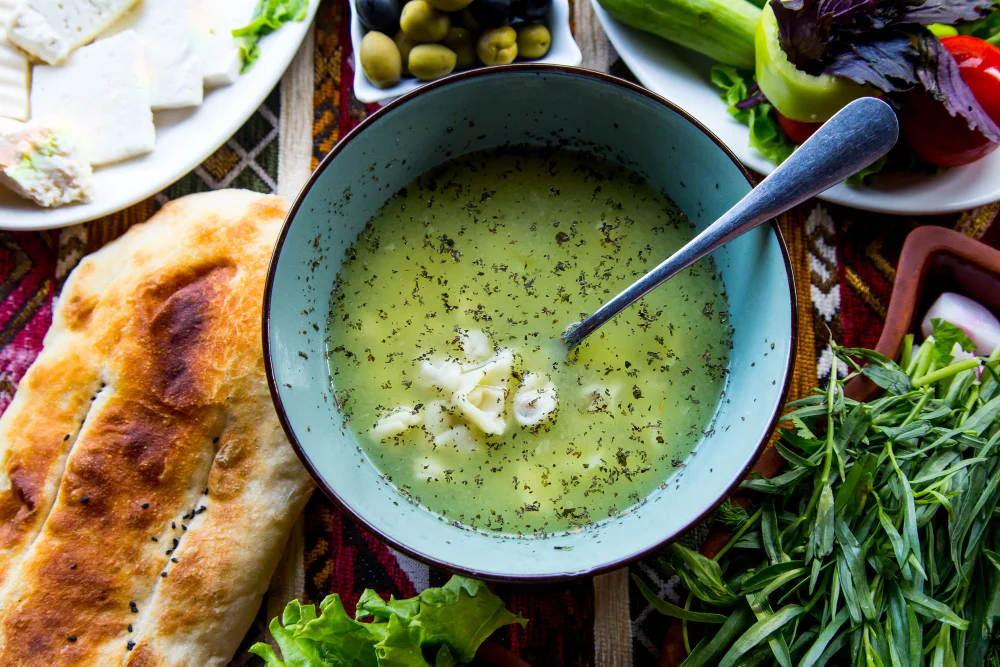When you open your fridge to find a block of halloumi that you didn’t quite finish during your last cooking spree, you might wonder: Can I freeze halloumi cheese? It’s a valid question, especially for those who love the squeaky, salty goodness of this unique cheese but don’t always manage to use it up before it starts to lose its freshness.
Halloumi cheese is one of those ingredients that, although incredibly versatile, doesn’t always get the attention it deserves when it comes to food storage. Whether you’re a halloumi fan or simply trying to figure out how to preserve leftovers, understanding whether freezing is a good option for this beloved cheese is important.
As a food blogger with years of experience testing recipes and exploring storage hacks, I’ve delved into the science of freezing halloumi, spoken to experts, and tried freezing methods myself to find out what works best. The good news is, you can freeze halloumi—but with a few caveats. In this article, I’ll explain how to freeze halloumi properly, what happens to its texture after freezing, and share expert insights that will help you make the most out of your frozen cheese.
Why Freeze Halloumi Cheese?
Before we dive into the details, let’s look at why you might want to freeze halloumi in the first place. Typically, halloumi has a long shelf life when kept in the fridge, but there are times when you might end up with more than you can use. Freezing halloumi is a way to avoid waste, save money, and ensure you always have a block of halloumi ready for your next grilling or frying session.
Halloumi’s firm texture and high melting point make it an ideal candidate for freezing. Unlike many other cheeses, halloumi doesn’t melt or lose its structure when cooked. This makes it a perfect cheese for grilling or frying after it has been frozen and thawed. So, if you find yourself with surplus halloumi, freezing it could be a practical solution.
Freezing Halloumi: What You Need to Know
Does Halloumi Freeze Well?
The short answer is yes—but it depends on how you do it. Halloumi is a semi-hard cheese, which means it’s firmer and has a lower moisture content than soft cheeses like brie or cream cheese. This lower moisture content allows halloumi to withstand freezing better than many other cheeses.
However, freezing halloumi does have an impact on its texture. When frozen, halloumi tends to become a bit crumblier, and it may lose some of its signature squeakiness after thawing. That said, when you cook it post-freeze, you’ll find that it retains much of its original quality, especially if you plan to grill or fry it.
What Happens to Halloumi When Frozen?
When halloumi is frozen, the water inside the cheese forms ice crystals. These ice crystals can rupture the structure of the cheese, affecting its texture. The good news is that because halloumi has a dense texture, it retains most of its cooking qualities after freezing. If you’re planning to cook it—grill, fry, or bake—this texture change won’t be as noticeable.
How to Freeze Halloumi Cheese: A Step-by-Step Guide
If you’re ready to freeze your halloumi, here’s how to do it right:
- Wrap the Halloumi Properly
Freezing halloumi can cause it to absorb odours from your freezer, so it’s important to wrap it tightly. Start by placing the block of halloumi in a piece of wax paper or parchment paper. Then, wrap it in a layer of plastic wrap to prevent air exposure. Finally, place the wrapped cheese in an airtight freezer bag or container. Label it with the date to keep track of how long it’s been frozen. - Slice or Cube (Optional)
While you can freeze halloumi as a whole block, it’s often better to slice or cube it before freezing, especially if you plan to use it in smaller portions. Cutting the cheese before freezing means you can grab exactly what you need without defrosting the entire block. Plus, small pieces will thaw more evenly and quickly. - Freezing the Halloumi
Place your wrapped halloumi in the coldest part of your freezer. Freezing halloumi takes about 4-6 hours, and it can stay frozen for up to 3 months without losing too much of its flavour or texture. - Thawing Halloumi
When you’re ready to use your frozen halloumi, the best method is to thaw it in the fridge overnight. While this ensures the cheese doesn’t become too watery, you can also thaw it in the microwave for quicker use if you’re in a rush. Be sure to drain any excess moisture before cooking with the cheese.
Expert Insights: What Chefs Say About Freezing Halloumi
I reached out to a few experts to get their take on freezing halloumi. Chef Maria Nunez, who specializes in Mediterranean cuisine, explains:
“Halloumi is one of those cheeses that actually benefits from freezing if you plan to cook it. It’s perfect for grilling or frying after thawing, and it holds up beautifully, even with a slight texture change.”
In addition to chefs, I also spoke to Dr. Emily Turner, a food scientist, who adds:
“Halloumi’s high salt content and low moisture make it more forgiving when frozen compared to softer cheeses. However, it’s important to note that if you plan to use it in raw dishes, freezing may affect its quality.”
Freezing Halloumi: Pros and Cons
Pros:
- Extended shelf life: Freezing halloumi is an effective way to extend its usability, especially if you buy in bulk.
- Minimal impact on cooking quality: The cheese still works well when grilled, fried, or baked after freezing.
- Convenience: Having frozen halloumi means you’ll always have some on hand for your favourite dishes.
Cons:
- Texture changes: Thawed halloumi can become slightly crumblier and lose some of its trademark squeak.
- Not ideal for raw consumption: Freezing may alter the texture too much for dishes where you would normally eat halloumi fresh, like salads.
FAQ: Frequently Asked Questions
1. Can you freeze cooked halloumi?
Yes, you can freeze cooked halloumi. However, like raw halloumi, it may change in texture, becoming a little softer and less squeaky. It’s best to freeze cooked halloumi in a single layer to avoid clumping.
2. How long can halloumi stay frozen?
Halloumi can stay frozen for up to 3 months without significant loss of quality. After this, its texture and flavour may degrade.
3. Can you cook frozen halloumi without thawing?
Yes, you can cook frozen halloumi without thawing, but it’s important to dry it well to prevent excess moisture during cooking. It’s particularly great for grilling or frying straight from the freezer.
Final Thoughts: Is Freezing Halloumi Worth It?
Freezing halloumi is an excellent option if you’re looking to preserve this cheese for future use, especially when you have extra or can’t finish it before it starts to deteriorate. While it may lose some of its firmness and squeakiness, the change in texture is minimal enough to still make it enjoyable in most cooked dishes.
The key takeaway here is that freezing works best for those who plan to cook with halloumi, whether grilling, frying, or baking. If you intend to eat it fresh, freezing may not be your best option. Ultimately, it’s about balancing convenience with quality.
Have you tried freezing halloumi before? Let me know how it worked for you or share your tips in the comments below! Don’t forget to explore our other cheese storage guides to make the most out of your kitchen staples.
After this, If you want to learn a new recipe then make sure to check out our Kale and Parmesan Soup Recipe. Hope you will like it!













